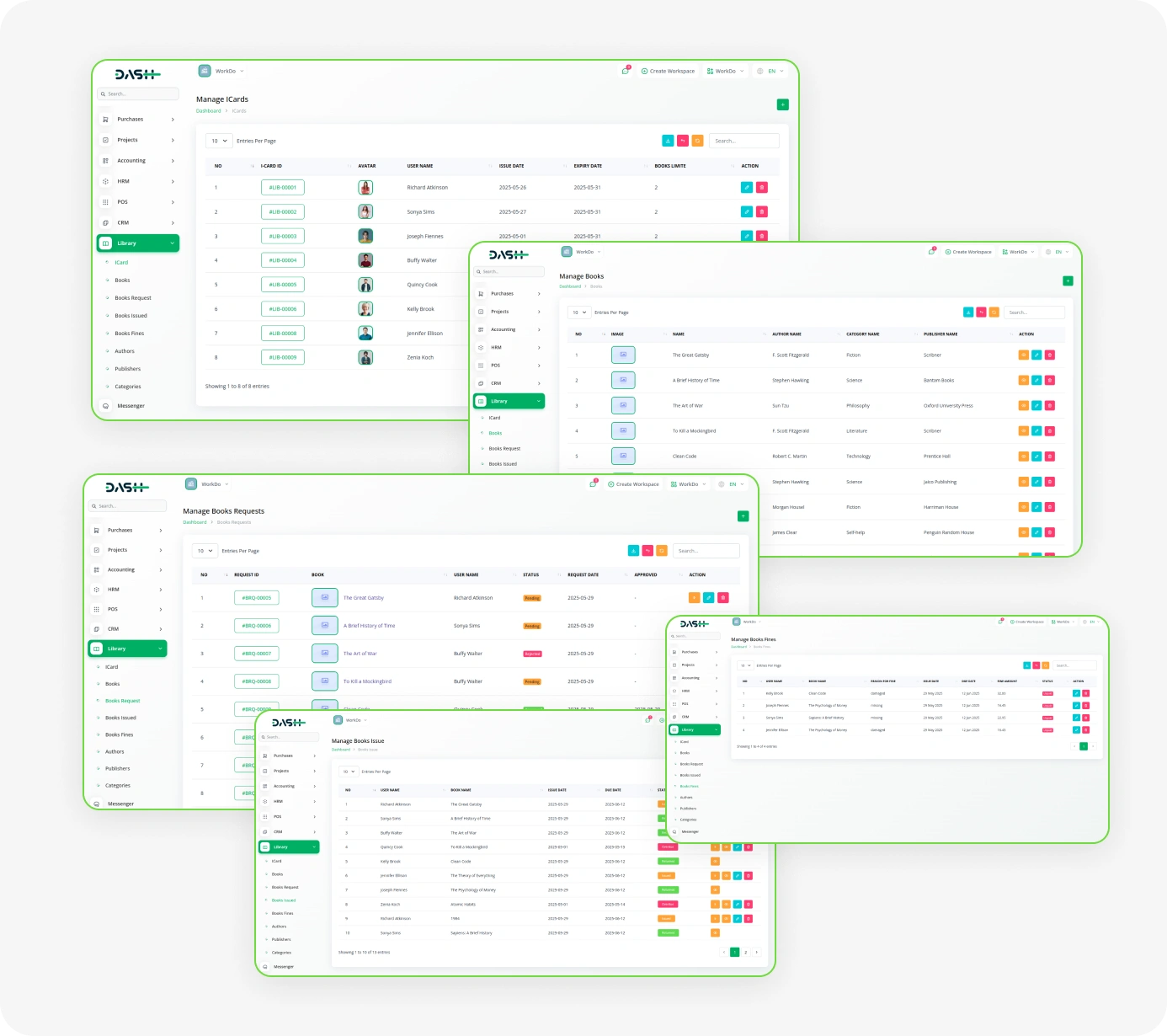
Key Functionalities of the Library Management System
- Smart Library ID Cards
- Book Inventory Management
- Author & Publisher Profiles
- Book Categorization System
- Book Request Tracking
- Book Issue & Return Logs
- Fine Calculation for Overdues
Smart ID Card System
The ID Card system offers a structured approach to managing library users through personalized digital cards. Each card includes essential fields like the associated user, issue date, expiry date, number of books that can be issued, and optional notes. Admins can create, edit, and delete cards directly, helping maintain borrowing limits and organize user access. Cards also visually represent users through avatars, simplifying identity verification and improving user recognition. Every issued book, fine, or request made by the user is linked back to their I-Card profile, ensuring centralized tracking of all activities.
- Assign custom roles for ID display
- Set card issue and expiry dates
- Profile image override support
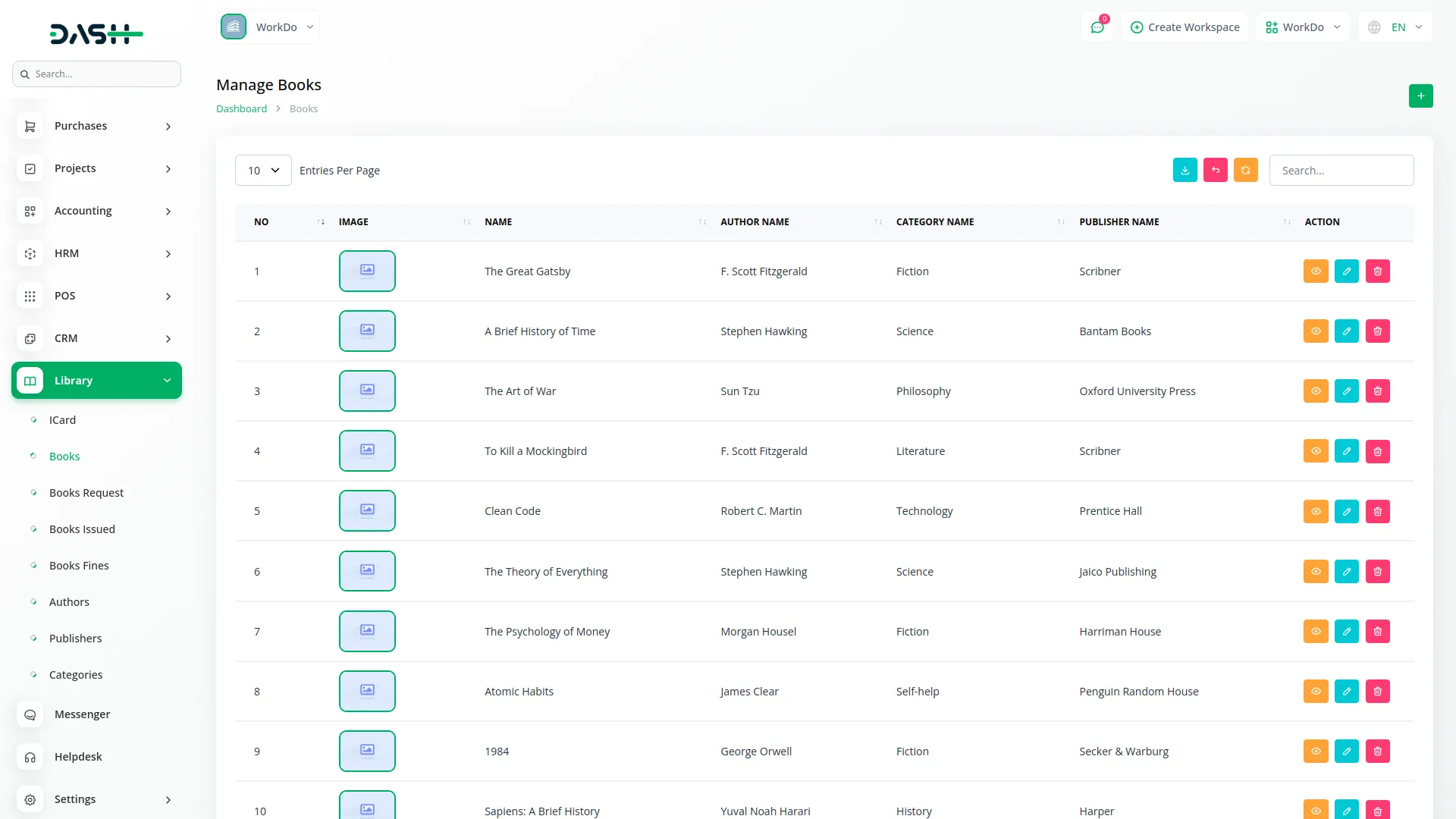
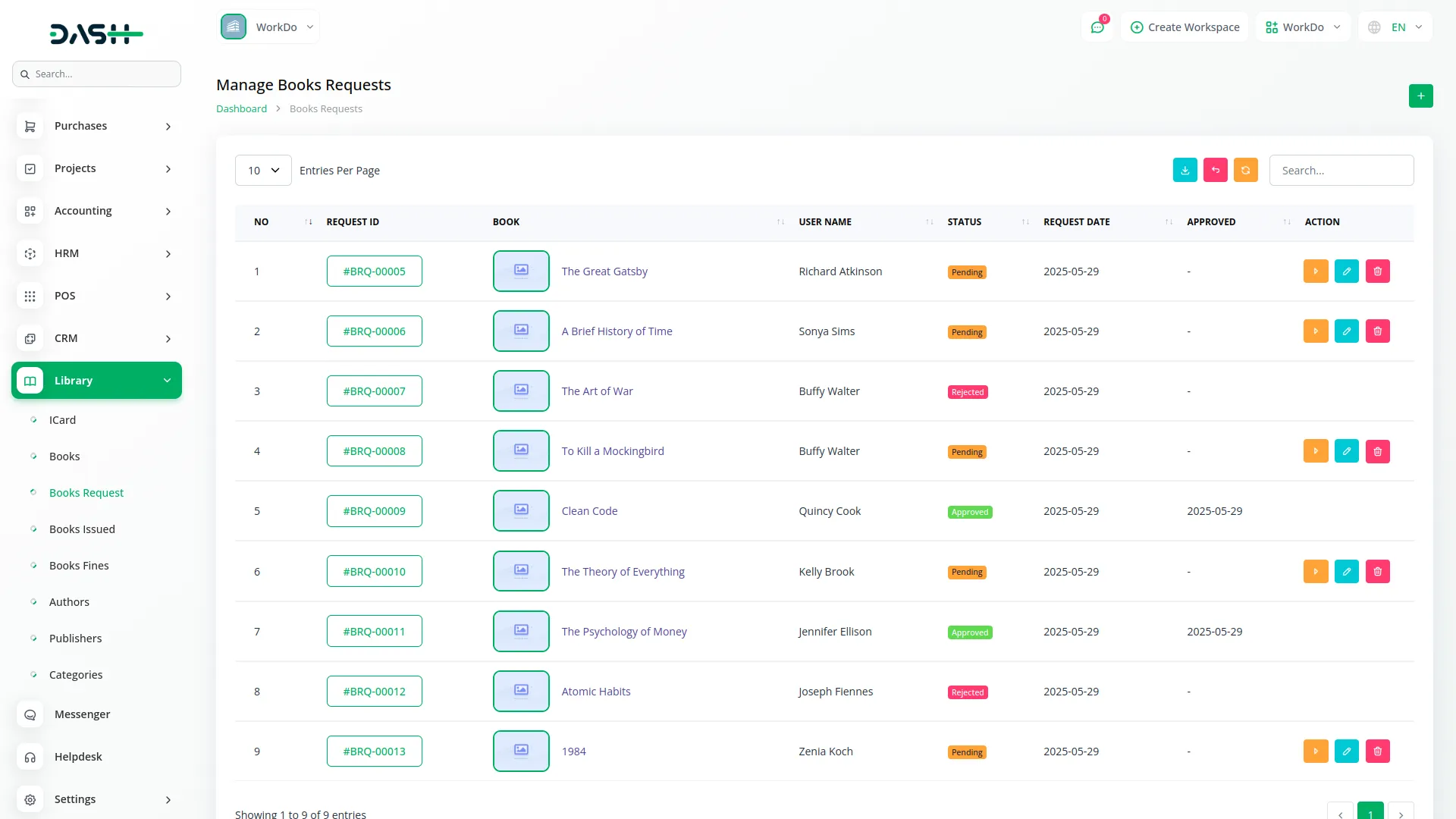
Book Inventory Management
Book inventory is managed in detail using fields like book name, ISBN, published date, price, quantity, and current availability status such as issued, reserved, coming soon, or under maintenance. Each book is associated with an author, publisher, and category to provide better classification and ease of lookup. The listing view shows vital information such as book image, name, and links to related authors, categories, and publishers. Admins can add new books, export the list, and update any entry. This helps ensure that the library maintains an accurate record of book stock and availability.
- Add/edit/delete books with full metadata
- Upload cover images
- Track stock: total vs available
Book Request Management
This section lets users request books they want to borrow. Admins can view each request with full details, including request ID, book name, user name, request date, and current status (pending, approved, or rejected). Each request is linked to a book and user profile, ensuring traceability. Admins have the ability to view, edit, delete, or take action on a request from within the system. This streamlines the approval process and reduces manual effort in handling multiple user queries. Every change in status is reflected immediately, making request management smooth and efficient.
- Request a system for any listed book
- Admin approval or rejection
- Status updates with request history
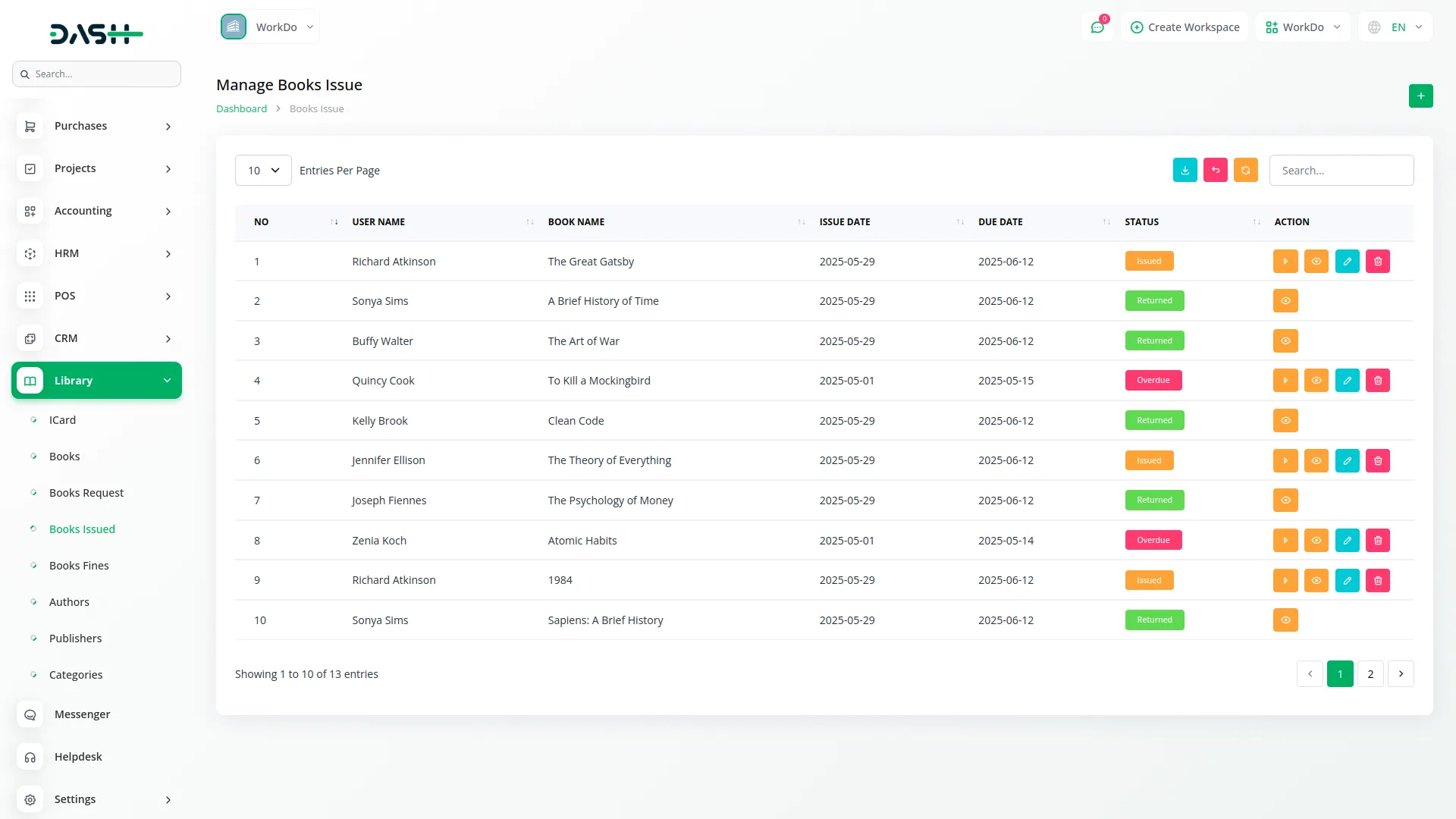
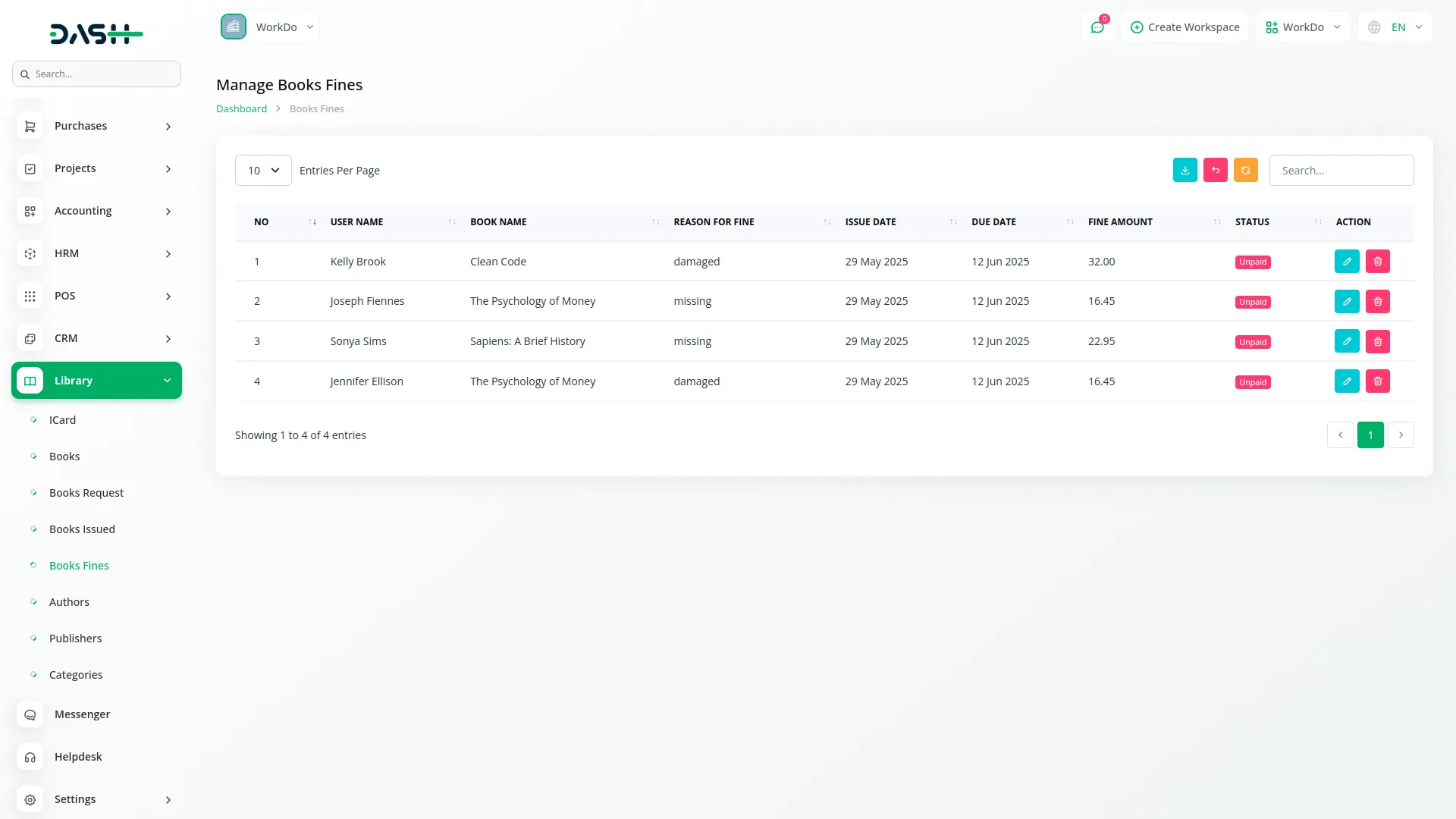
Book Issue & Return Tracking
The Book Issue section captures all relevant details when a book is issued, including the user, selected book, issue date, due date, fine per day, and notes. Admins can view a complete table of current issues and returns, including the user's name, book title, and status like issued, returned, overdue, damaged, or missing. A dedicated detail view is also available to understand each record better. The system ensures a complete borrowing cycle is covered and supports actions like edit and delete to make adjustments. This reduces missed returns and helps in accurate fine collection.
- Set issue and due dates
- Automatic overdue status update
- Fine amount tracking
Fine Management
Library administrators can monitor all fines related to overdue, damaged, or missing books. Each fine entry is linked with the user, book, issue details, and includes the reason for fine, issue date, due date, and fine amount. Admins can also track whether the fine is paid or unpaid. The listing includes a direct connection to the original book issue entry, ensuring all fines are based on valid data. This system brings transparency, ensures accountability from users, and enables proper financial tracking of penalties within the library.
- Fine field per transaction
- Manual entry and audit-ready logs
- Helps in accountability
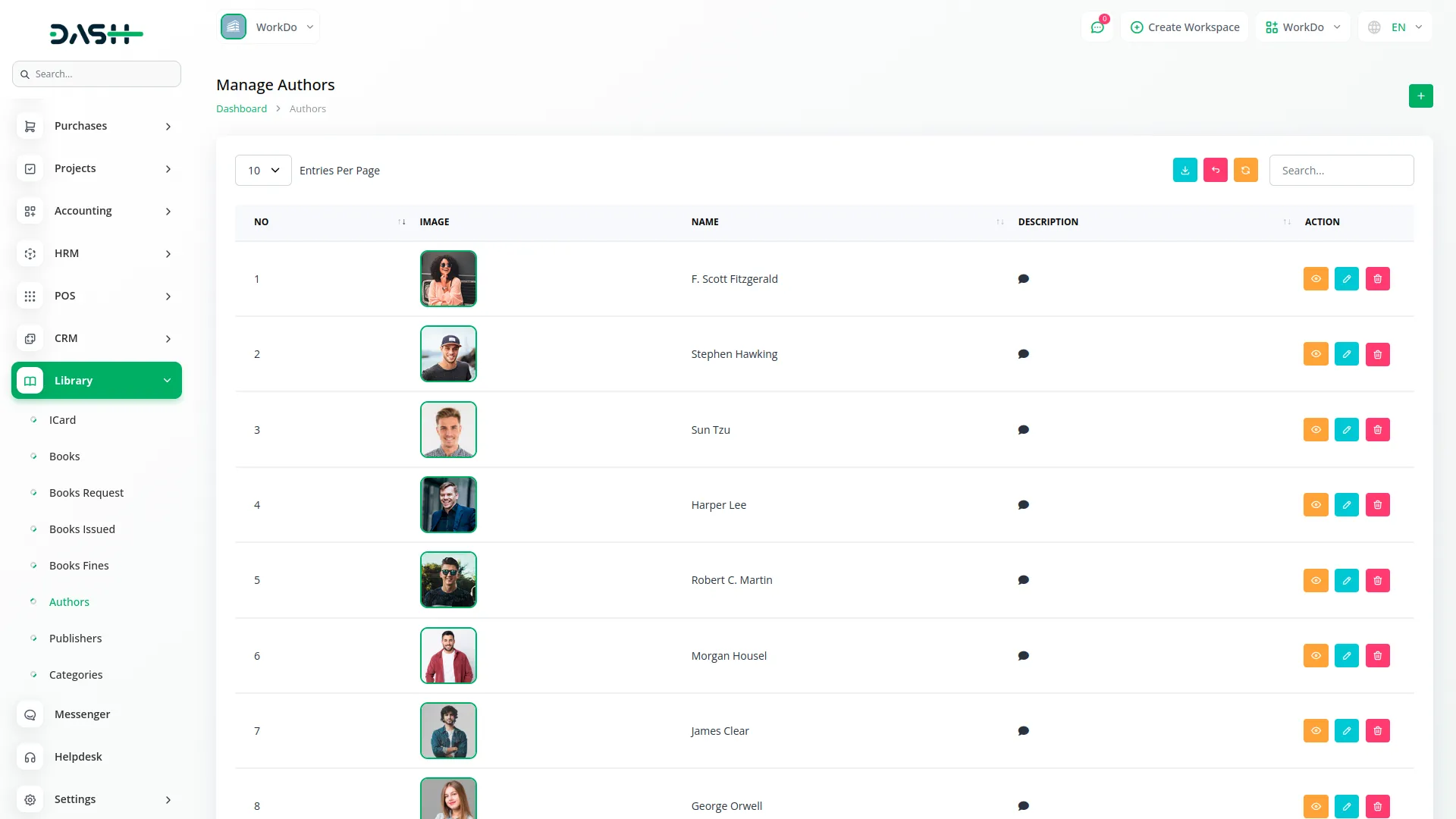
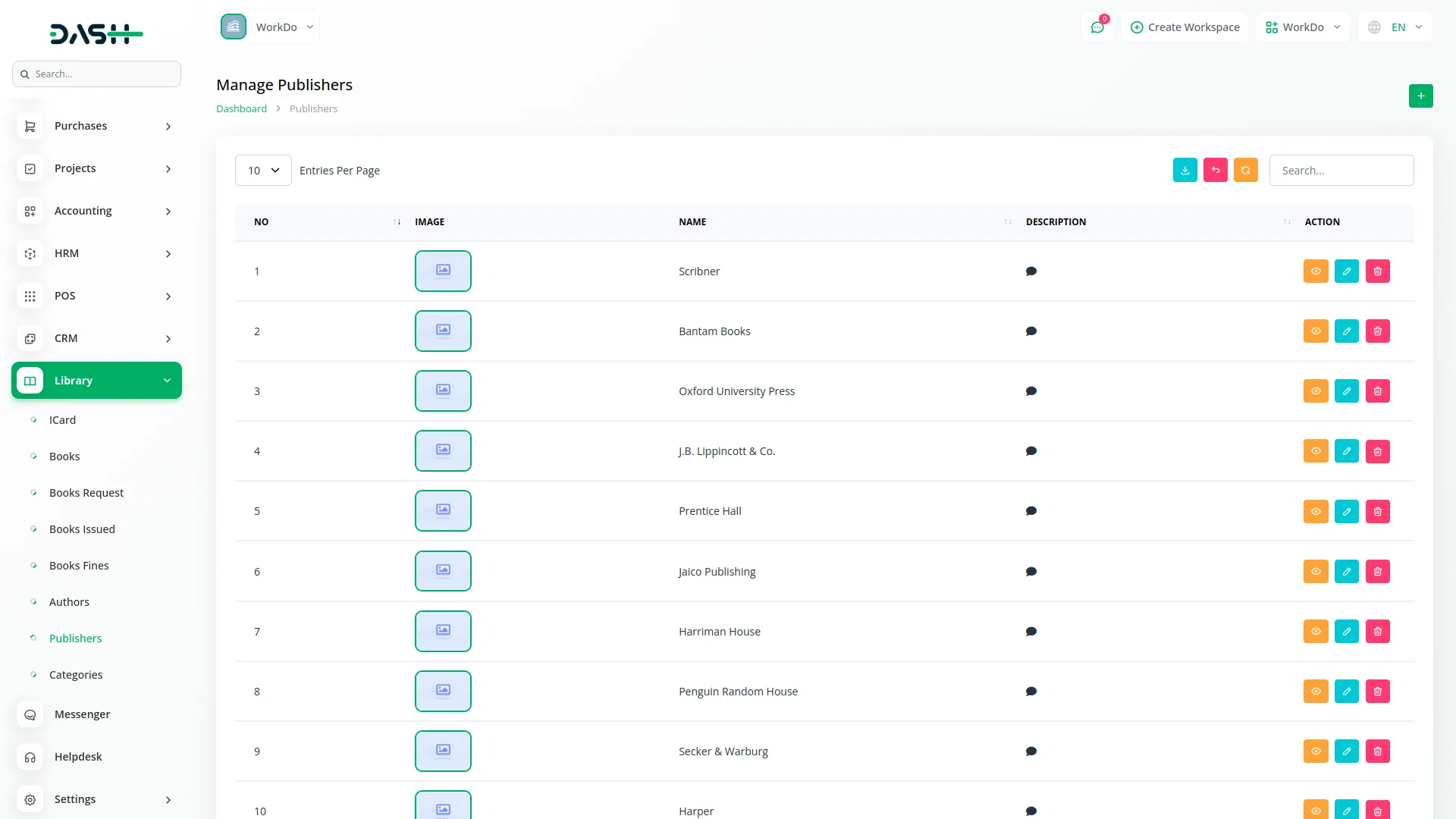
Book Metadata & Classification
Each book can be categorized by its author, publisher, and subject category. Admins can manage these entities independently through their own modules. Author and publisher records include a name, image, and description. Categories come with a name and optional description. When assigning metadata to a book, these selections ensure that the library remains organized and search-friendly. This layered structure helps in sorting, filtering, and managing books based on their content, source, or theme—resulting in quicker access to relevant materials.
- Centralized author and publisher profiles
- Custom category creation and tagging
- Dynamic book-to-author, publisher, and category linking
Screenshots from our system
To explore the functionality and usage of these Add-Ons, refer to the accompanying screenshots for step-by-step instructions on how to maximize their features.
1 review for Library Management – Dash SaaS Add-On
| 5 star | 100% | |
| 4 star | 0% | |
| 3 star | 0% | |
| 2 star | 0% | |
| 1 star | 0% |
Comments
You must be logged in to post a comment.
There are no comment yet.
Contact Us for Support :
-
You will get immediate support from our support desk. Please visit here https://support.workdo.io/
Item support includes:
- Answer pre-sale questions or query
- Answering technical questions about item's features
- Assistance with reported bugs and issues
- Help with included 3rd party assets
- Free Installation services in some cases
However, item support does not include:
- Customization services
Check Documents & Tutorials


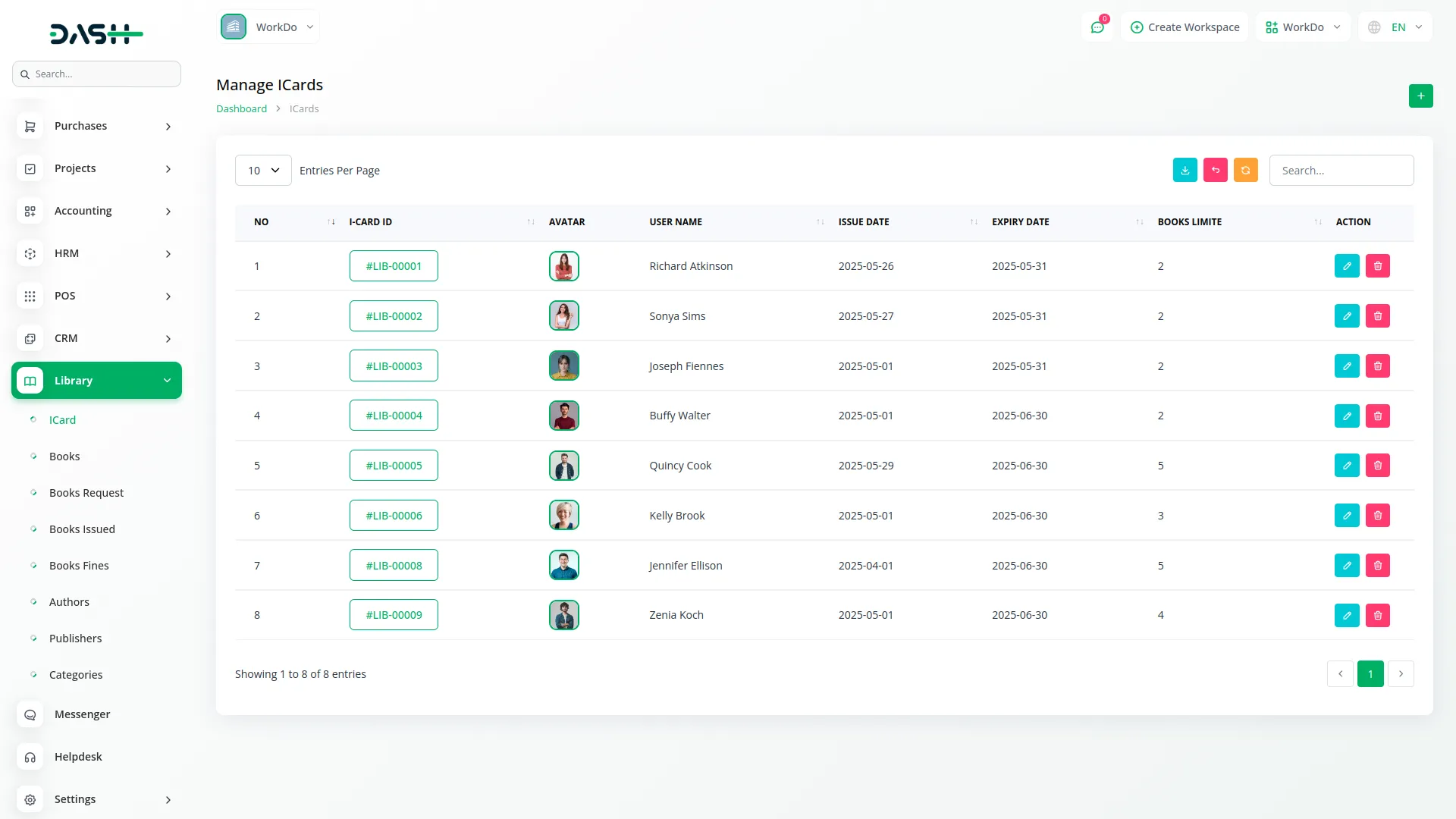
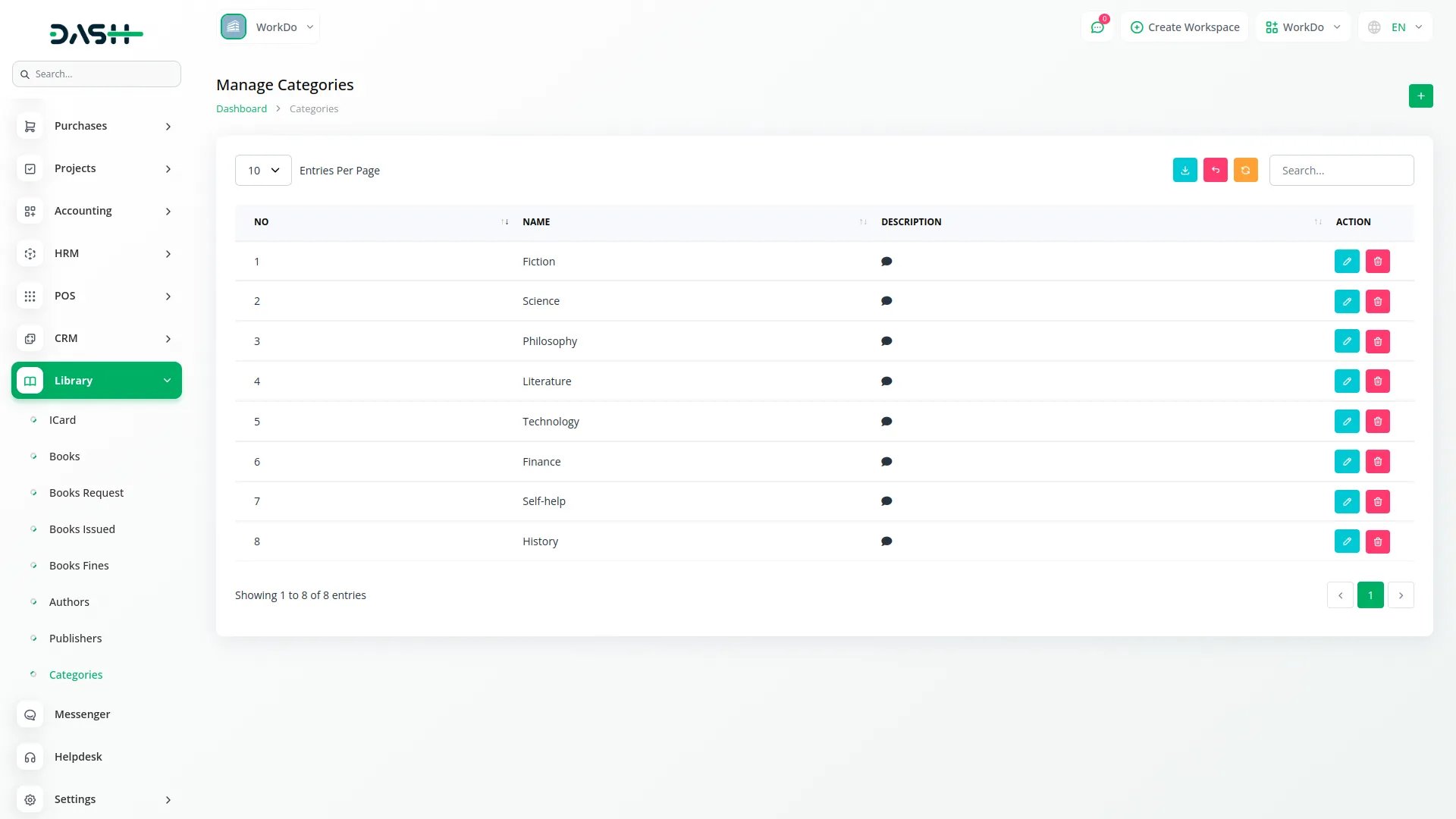
The platform helped us streamline communication across our teams without extra tools